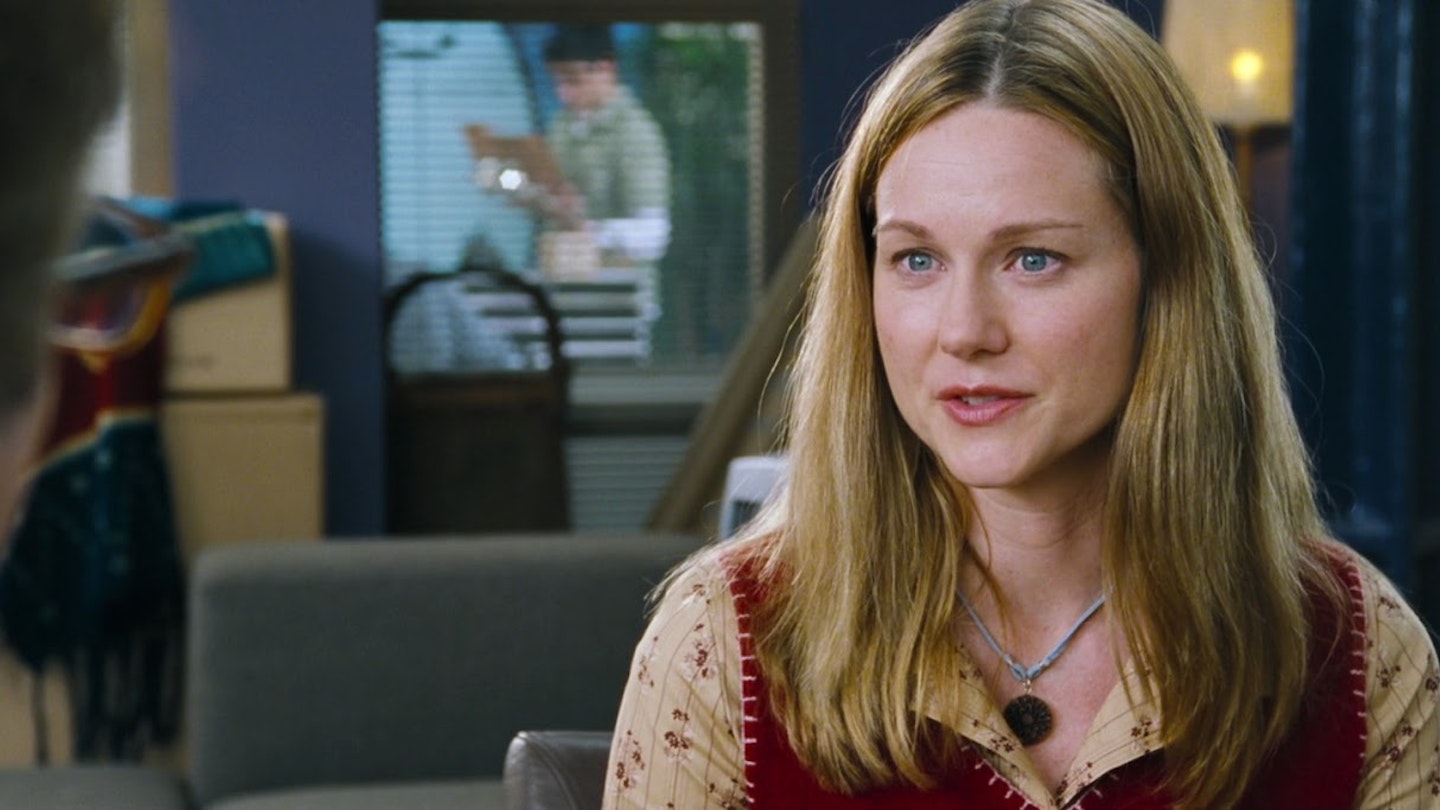In the whole fluffy, delightful, infuriating, schmaltzy, unbeatable mess that is Love Actually, only two individuals in the entire film fail to end their narrative threads with the person they love (for better or worse). The first, Mark, seems a reasonable conclusion. Played by Andrew Lincoln, Mark has to accept that he will never be with his best friend's wife, and walks into the Notting Hill night with his placards after a brief, consolatory kiss. But the second is infuriating.
What happened to Laura Linney in Love Actually?
Sarah, played by Laura Linney, has spent years pining over her absolutely gorgeous colleague Karl, the god-like Rodrigo Santoro, and finally does something about it. They dance, they bond, and she takes him home for what should be a spectacular evening. Alas, the phone rings. Houston, we have a problem, and that problem is her mentally ill brother, Michael.
A phone call from her brother is enough for Sarah to press pause on her romantic night in her strange studio flat and its sad, twiggy Christmas tree. Sarah chooses to speak to her brother rather than continue to sit astride Karl, boobs out. Karl, for his sins, gives up pretty easily on trying to make love to her. The affair is over before it began. A scene at the end of the film makes it clear that their romance progresses no further. They wish each other a good night, as usual, with a mournful 'Merry Christmas'.
Laura Linney's Love Actually ending explained
This is the greatest injustice in Love Actually. This was a real opportunity to show that love can transcend all obstacles. It is formidable that Sarah loves her brother unconditionally, and puts his happiness and comfort above all else. But the film suggests that there is no other option than to choose. She makes no attempt to find a way to win back Karl by explaining the situation and asking him for patience. Nor does Karl try to reconnect at the office, to say that he will happily be flexible as they explore if they have something special. Harry, their boss, does not encourage either of them to try and make it work: he's too busy buying jewellery for short-skirted secretaries.
No: Sarah essentially accepts that being there for her brother means not being there for herself. It is selfless, but I also think it's a dangerous message to portray. Carers across the world may think that they, too, may never find love or happiness thanks to the pain that they are bearing.
I accept that it was important to show that, sometimes, love actually doesn't work out. It is vital that Emma Thompson's Karen ends the film in a state of resigned grief in the crumbled ruins of her marriage, but her union with cheating Harry is still intact. Someone had to end up alone. But why Sarah, a good, selfless woman who deserves happiness? Wouldn't Jamie (Colin Firth) be a stronger choice, showing that a love free of verbal communication is ridiculous? Shouldn't Colin (Kris Marshall) have been knocked back by every woman in America, to teach him a lesson about thinking with an organ other than your brain? Surely Daniel (Liam Neeson) could have simply accepted life as a widower for a little while before glinting, teenage-style, at Claudia Schiffer weeks after reading his wife's Bay City Rollers soundtracked eulogy. The options for a sad ending are pretty unlimited. And yet it was Sarah - meek, kind Sarah - who has to represent loneliness and tragedy.
She does, at least, get a happy ending in the Comic Relief version that aired only in the US (Laura was unavailable to film in time for the UK version's broadcast). In the clip, she is seen working late as usual when the phone rings. One assumes that it is her brother of yore, but it becomes clear that it is Patrick Dempsey, handsome star of Grey's Anatomy. He calls her 'wife', and you can see children's drawings pinned to the wall of the home they share. There is no mention of Michael, which is in itself flawed: you could argue that the truly happy ending would show her having worked out how to be there for her brother without sacrificing her own personal life. This extra instalment merely implies that she has chosen one over the other or, even worse, that Michael has been removed from the picture.
I wish that Sarah had ended up with Karl. I wish that she had continued to care for Michael. The two did not have to be mutually exclusive. I hope that people all over the world working hard to be there for their loved ones come to know that.
READ MORE: We Still Can't Believe Love Actually Got Away With Calling Natalie Fat
READ MORE: Why Were The Two Most Diverse Storylines Cut From Love Actually?
